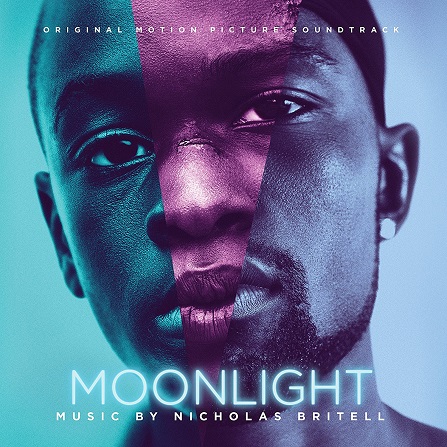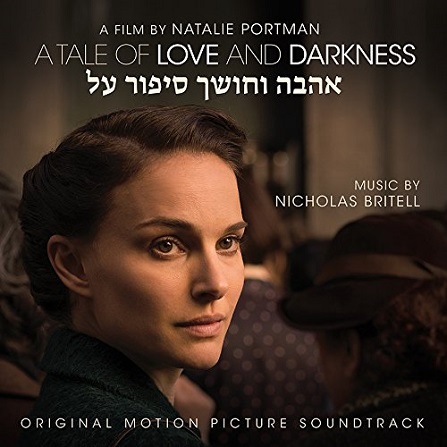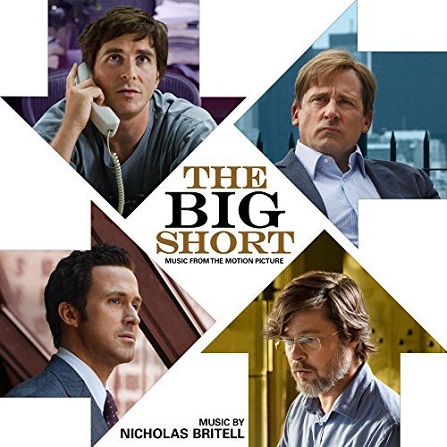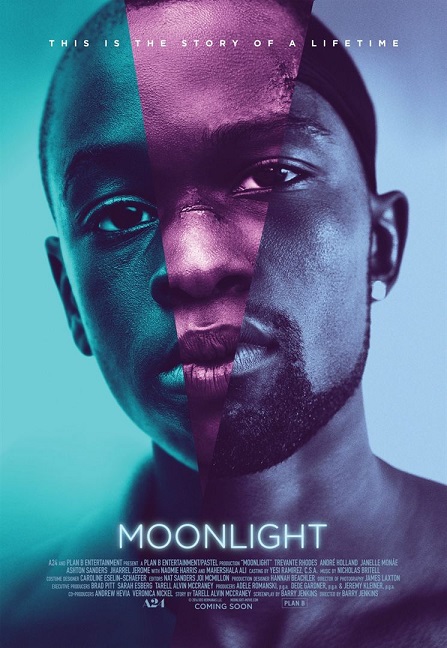Interview - Moonlight : Let's talk with Nicholas Britell
By Mulder, Los Angeles, 24 november 2016

Q: What is your musical background, and how did you become a film composer?
Nicholas Britell : I started playing the piano when I was five years old. I had seen the movie Chariots of Fire, and we had a very old upright piano in our apartment. I loved the music so much that I went to the piano and tried to figure it out, and I asked my mom for piano lessons. That is really when I started playing the piano, and that's also in some ways maybe when my interest in film music first began. I studied as a classical pianist. I considered being a full-time concert pianist, and eventually started doing some jazz. Then in college, I joined a hip-hop band, and was very focused on that for a long time. It was also in college that I, for the first time, had the opportunity to write music for a film. A very dear friend of mine was making his first feature film at the time, and he asked me to write the score. I had the opportunity to write two and half to three hours of orchestral music for this film, which at the time, had no budget. I ended up just programming it all in on a keyboard, but it was great experience. I will also add that in high school I was studying piano in the Juilliard pre-college division. For college, I was at Harvard, and that's where I had my hip-hop band.
Q: You created some unique and beautiful musical textures throughout the movie. Is there one cue or musical texture that stands out specifically for you in this score, and why is it important?
Nicholas Britell : Thank you so much. I think the cue which has really become almost a signature of this score in a way, is the cue which we call "The Middle of the World". It’s where Little learns how to swim. That’s the music that Barry and the producers put into the trailer. Getting to that sound was a really fascinating process. Barry was looking for something very powerful for that scene, and early on in the music exploration I did for the score, I was attracted to the sound of the violin. We recorded a very quiet violin, which brought out the inherent poetry that’s in the film. What was interesting was, in the swimming sequence, the violin takes on a totally different character and really soars. I had this idea of utilizing almost the characteristics of a violin concerto; a large-scale arpeggios, which is performed amazingly by Tim Fain, our violinist. In some ways, that was for me, probably the most memorable cue to put together because when we finally achieved this sound, I think it really felt like what that scene demanded. Musically, I thought it was an awesome opportunity to write something that had this level of virtuosity, but also for me, there's a real poignancy in the sound there. There's a yearning in that soaring violin that's trying to reach upwards, and I think that was a very powerful cue to put together.

Q: Were there any creative challenges in composing the music for the film? If so, how did you overcome them, or how did you work through them?
Nicholas Britell : I would not say there were any creative challenges per say. There were many creative opportunities that Barry and I explored. If I had to say there was one challenge, I think it would be the idea of how to create cohesion across three chapters of a life. How do you have there be a linkage across time, while also allowing for a transformation to occur? I think if there were one challenge to speak of, that would perhaps be it, and there were a variety of ways in which we worked through that. Earlier on in the process, Barry told me about his love of chopped and screwed music, which is a style of southern hip-hop, where the music is slowed down. You take a track, and you slow it down, and in the process of slowing it down, the pitch goes down and gets really enriched and deepened and takes on a totally new character. We had this interesting idea of chopping and screwing the classical score that I was writing for the movie. What if I actually applied these aesthetic techniques to an instrumental orchestral score? We were immediately really excited about the possibilities of doing that. One of the ways in which we evolved the music over the course of three chapters is by using some of these techniques. For example, in the beginning of the movie, there's a piano and violin theme for Little, which we call "Little's Theme". Musically, the elements of that piece are similar when it comes back in chapter two, as what we call, "Chiron's Theme". However, in chapter two, it's modulated to a different key. It's a bit lower and deeper and richer. Not only is it a different key, it's actually a little slower and bent lower. After this, in the school yard sequence, which is really an incredibly traumatic and difficult experience for Chiron, the music is chopped and screwed really extensively. It's pitched and slowed almost three octaves down. Then I took the track and layered it on top of itself, and ran it through a vinyl filter. The result is something which is almost unrecognizable, and yet, occasionally you can hear remnants of the original Little's Theme. You hear the piano just occasionally poking through, and yet the whole track is rumbling in the sub-woofers. That's an example where we actually took the same music and completely transformed it through this chopping and screwing process. Yet, fundamentally, there is a link there, because it's really the same sonic elements, just completely transformed. That was one of the elements. There were many other ways in which we evolved the sound over the course of the film, but that was one of the techniques, and I think it both transformed and enabled cohesion across the chapters.
Q: Talk a little bit about your composing or writing process. Do you start on a piano with themes, or how do you start at the very beginning with an idea and translate that into music?
Nicholas Britell : It's a great question! It really depends. Sometimes I'll be at a piano, but oftentimes, a feeling or an idea just comes to me in my mind first. Next, I try to explore the idea, potentially on a piano, potentially on paper, often at a computer as well, where I can try out different sounds, but there's no one way. Sometimes, a whole idea appears at once, sometimes just a kernel of an idea appears, and you have to then try things out. There are periods of time where you're sitting at the piano, and you're just exploring things, and you're not certain where you are going. There's a bit of a search process where you're trying to find things that feel right to you. I would say there's no one way to write music.

Q: It seems like you had a very awesome collaborative relationship with Barry Jenkins. Do you have any favorite memories about working on the score with him?
Nicholas Britell : We had an amazing time working together. I think my favorite memories just revolve around the fact that we were able to work so closely together. Barry would fly to New York for periods of time, and we work together in my studio here in Lincoln Center. We would spend whole days together just trying out ideas and looking at the way that music impacted certain scenes. It was just a great chance to be really immersed in a creative process, and for me, that's one of the great joys of film composing, the opportunity to collaborate with other people on the music. For me, it's really about writing music that moves me, but at the same time, it's ultimately about the film. It's about the picture, and how does the music interact with that. The chance to work so closely with someone in the studio is something that I always strive for and push for. I think the amazing weeks we spent together working on the score was really the high point.
Q: What composers and/or music inspire you?
Nicholas Britell : There are so many composers who have inspired me over time. As I mentioned before, listening to "Chariots of Fire" was the first inspiration I had as a child, but as a classical pianist, there are so many composers that I loved playing. I loved performing Mozart and Rachmaninoff and Schumann and Gershwin and Beethoven. Also, I love hip-hop music, so I'd listen to a lot of hip-hop. I love everything from Dr. Dre to Gang Starr, and I'm a huge fan of all sorts of music. There are so many composers and music from around the world that I find inspiring.
Q: Can you talk at all about your next project?
Nicholas Britell : Yes! In fact, in my next project I'm scoring the film "Battle of the Sexes", directed by Jonathan Dayton and Valerie Faris, which is the story of the 1973 tennis match between Billie Jean King and Bobby Riggs. It stars Steve Carell as Bobby Riggs and Emma Stone as Billie Jean King.

Q: Any advice to young film composers who want to specifically compose for movies?
Nicholas Britell : I think a few things. I think the first advice I would say is explore as much music as possible and really study the music. Figure out what it is about the music that you love, what are the things that the composers are doing to create those sounds, because once you understand the techniques you can put that into practice. Study a Mozart symphony and see what it is that Mozart is doing that helps create some of these sounds or these textures. Then, the most important thing of all, is to love movies and to watch a lot of movies. Growing up, I used to just watch movies obsessively. It was a ritual to go to Blockbuster Video and just rent so many movies and just be watching movies all the time. It's awesome to be able to actually participate in the process of making movies having had them be such a part of my childhood and youth growing up. I think the most important thing really is to study films, especially if someone is interested in film composing. It's to see the way that music works in different pictures, and see the choices that composers and directors make, and where the music goes, and what music goes in different spots, and how the music affects things. I think if you do that, that really will take you a long way towards understanding and enabling someone to be a film composer.
We sincerely thank Nicholas Britell for answering our questions
An huge thanks to Ali Homek for helping us to have this great interview..

